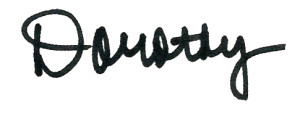By: Dorothy Douglass, SPHR, SHRM-SCP—
You’ve landed an interview! Congratulations! Now what? Here are some thoughts from a recruiter perspective:
Prepare.
Understand the job. If you have a job description, review it and think about how your experience – including life experience, and your education meet the criteria. Review the job posting. Think about specific examples of your experience that are similar to the job functions.
Know the company – Do research. Find the company’s website and review it. Write down some key points that make you interested in the company. Do you know anyone at the company? If so, call them up and find out why they work there. Ask if you can share their name with your interviewer.
Dress appropriately. Wear clean, pressed, professional-looking attire. Don’t wear jeans if you are interviewing at a bank or attorney’s office. If you understand/know the business, dress similarly. If it is a casual environment, a polo shirt and clean pressed khakis may be sufficient. Err on the side of over-dressing. If you are unsure, wear a suit. Key: clean, well-fitting, unwrinkled. Pay attention to your shoes – neat, clean – no flip flops please. If you don’t own a suit, buy one. Shop consignment stores, Goodwill or clearance racks in the department stores. Dress to impress.
Write down questions you want to know. On a first interview, please do not ask about pay, benefits, or paid time off. This will turn most recruiters and HR people off. Think through what you want to know about the company. Below are some suggestions:
Why is this position open?
Why do you work here?
What are the next steps from this point?
When might I hear something? If I don’t hear from you in a week, may I call you to follow up?
If you’ve been asked for additional information or need to complete information prior to the interview, be sure to have the information completed or bring it with you.
Get there on time, or up to 10 minutes early. Don’t arrive too early, and certainly don’t be late. If, for some reason, you are late, be sure to call the interviewer and explain your dilemma. If you are going to be more than 15 minutes late, ask if you can reschedule. Communicate and let them know you are sorry. Once there, shake hands firmly, smile genuinely, and make eye contact with whoever greets you. Share with them your name and who you are meeting with, and ask their name. Remember that name, and use it. Receptionists and office staff are often key contacts. If you are waiting for your recruiter, focus on what is going on wherever you are waiting. (Aka, don’t bury your head in your smart phone.)
Ace the Interview. You’re prepared. Take a deep breath. Greet the recruiter warmly – remember that firm handshake –listen carefully to interview questions. Answer with specific examples. Let me repeat, use specific examples.
Example: Interviewer asks: “Tell me about your customer service experience.”
Response: “Oh, I believe customer service is very important. It’s key to winning new relationships so I am always good at customer service.”
[Hint: This response did not answer the question.]
Better response: “As you can see in my resume/application, I worked for 6 months at XYZ Restaurant. One example of the customer service that I am proud of was when I was serving a family of four, whose children were very active. I brought the children some extra crayons and coloring sheets so the parents could finish their meal. The kids really liked that.”
During the interview, make eye contact with the interviewer, and if you need a minute or two to think of specifics, say so. Better to think before answering. Don’t BS. Don’t lie. Just don’t. If you don’t know the answer and/or cannot think of a good specific example, say so.
Ask questions at the end.
Thank the interviewer for their time. Shake hands, and be sure to say goodbye to the receptionist/office person, using their name.
Follow up. Be sure to get the recruiter/HR person/interviewer’s business card and follow up with an email or handwritten note thanking them for the interview. If you are no longer interested in the position, or you take a job elsewhere, pick up the phone and call your interviewer, thanking them for the opportunity. Keep the bridge, as you never know when you might want another shot.
If you haven’t heard anything in one week, place a phone call to your interviewer, and ask them how the job search is going and if you are still being considered for the role. Practice patience. Hopefully, the company will let you know – either that they want to interview you again, make you an offer, or are no longer considering you for a position. Irrespective of the outcome, show grace and professionalism. You will be remembered for this.
Good luck!
Dorothy Douglass, SPHR, SHRM-SCP is Vice President, Human Resources with MutualBank and is a Muncie Journal contributing editor on Human Resources topics and trends. MutualBank is a founding partner of the Muncie Journal project.
View her column from last month on “How to Conduct a Job Search in 2016.”



